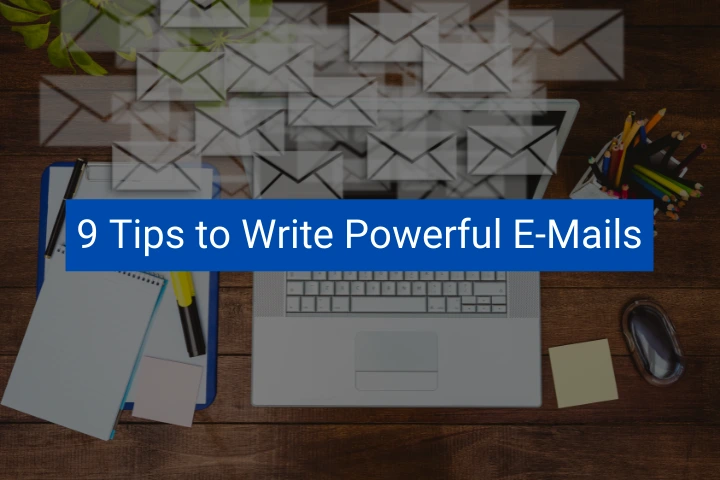1. Make a concerted effort to learn about email etiquette (often known as "netiquette" these days). There are several fantastic internet reference pages and books that will teach you the essentials. I understand that it may appear a little precious to place such a high value on social niceties when the internet is essentially extremely informal. Regardless of how we feel about it, many individuals take online etiquette quite seriously. So, if you're composing a business email, you should presume your receiver is one of these...

2. If you're furious, outraged, inebriated, or otherwise out of control, never send an email and, preferably, don't even bother to write one. You can sometimes fudge things over the phone if you're having a heated debate with someone. When you send an email, though, anything you've written is there, chiseled in stone, for as long as the recipient wants to look at it. The old adage "count to 10" before answering applies especially here. Only send furious emails if you are prepared to deal with, or don't care about, the recipient's repercussions!
3. One thing you might not realize is the importance of carefully considering the time you send your emails. To begin, it's always a good idea to avoid sending emails during Monday morning peak hours and Friday afternoon drowsiness. Furthermore, I've occasionally discovered that emails sent to businesses over the weekend getting lost in cyberspace. On a more subtle level, if your recipients notice that you're sending emails on a Sunday morning or late at night, they may believe they have the right to stop you for a business conversation at those times. Although you may think it's cool to impress a client by working around the clock, your partner may not appreciate it if the same client phones you at midnight.
4. People are naturally leery of attachments because practically everyone has been afflicted with a computer virus at some point. I never send attachments to people I don't know well, and I also don't open attachments from people I don't know well. Then there's the fact that certain modern viruses and worms clone themselves onto real email addresses and names, so even an email appearing to be from someone you know could be infected. If you're unsure, add text to the body of your email message or contact the recipient ahead of time to ensure they're okay with receiving it as an attachment.
5. Few individuals pay attention to the layout of emails, especially if (like me) their system is text-only. Even with plain text, though, a well-designed arrangement can improve readability. Above all, you should avoid sending emails that stretch across the entire screen. These are difficult to read, and your reader may have to tinker with fonts in order to view everything clearly as text. The most secure format is to employ lines that are no longer than 65 characters long. That looks good, works everywhere, and makes the email a lot simpler to read.
6. To attract the reader's attention, your subject line should focus on what's in it for them. You'll discover that including some form of advantage is the most effective approach to do so. For example, instead of saying "Project X — revised costs," say "Project X — expenses lowered by XX percent" in an email on a downwardly updated project budget. Even if there isn't a legitimate reason to use it, attempt to make it engaging and exciting. Also, avoid phrases like "free," "subscription," and others that spam filters despise.
7. Because the screen is a particularly unfavorable reading medium for most people's eyes, online writing must be kept succinct and straightforward. The KISS philosophy (Keep It Simple & Simple) is important for that reason alone. When sending emails, it's important to get right to the point and stick to it. Someone who receives dozens of emails every day does not have time to read the prologue. You'll have the best chance of avoiding the humiliating destiny of getting erased if you make your point succinctly.
8. In terms of writing style, it's significantly more helpful to write like people speak in this medium than in any other. Furthermore, leaving away all but essential adjectives and adverbs will make your email clearer and more concise. Keep your sentences short, and each one should only contain one core concept or topic. Paragraphs should be no more than 6 sentences long, if at all possible. Use bullet points if you have more than a few items to list.
9. If you're writing business emails, take advantage of the signature feature that appears after your name. It's astonishing how many people don't make proper use of that facility; however, it's a wonderful opportunity for you to promote yourself. Because the email signature shows at the conclusion, it is unlikely to upset your recipients. In fact, it will be considered as a useful supplement to your message if it offers useful contact information. Even if your email is merely text, you can still make it look professional.
For Human Resource, Payroll and many more HR Services, visit our website https://lingueeglobal.com/



